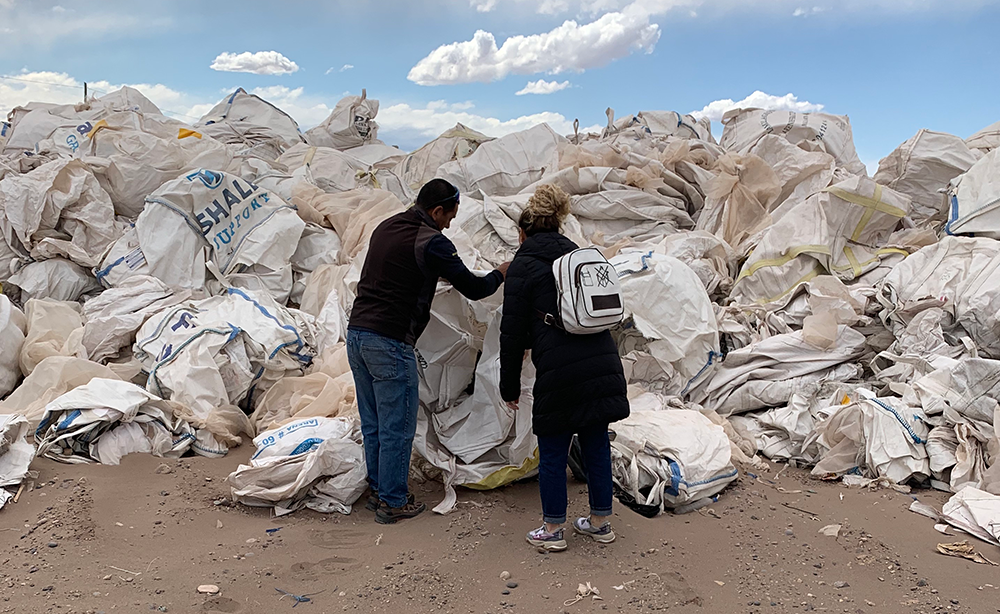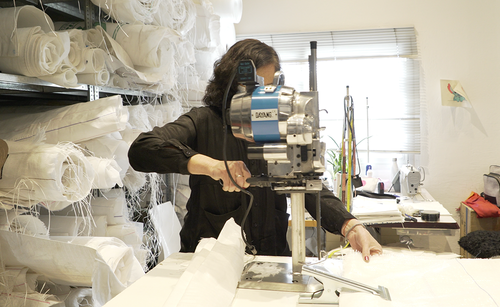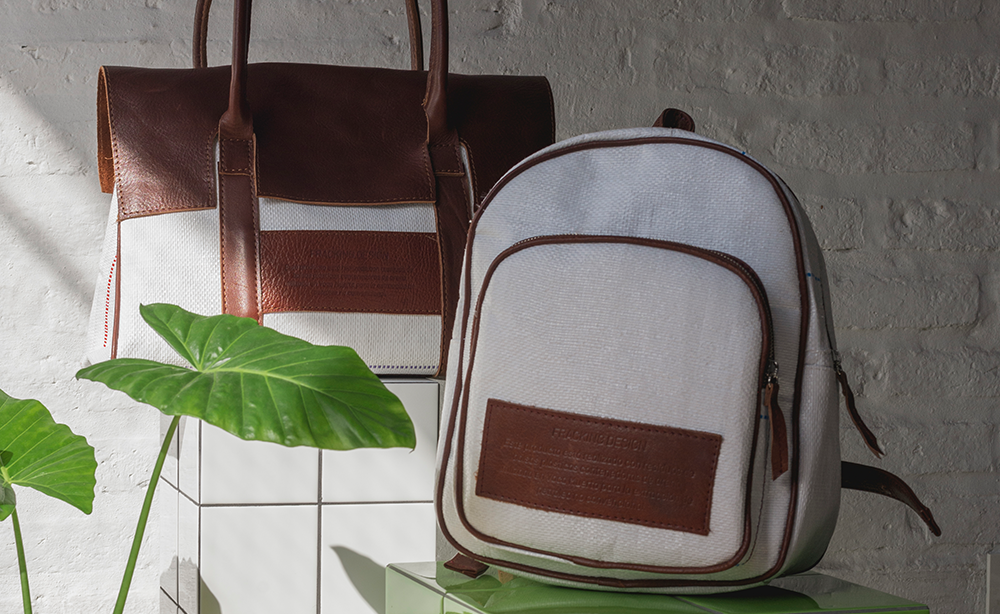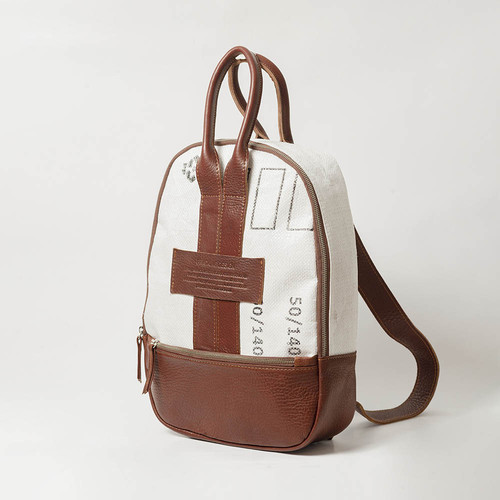Plastic Big Bags are a waste that today is mostly burned, it is not recycled, increasing the carbon footprint.
In Argentina, Vaca Muerta is one of the most important unconventional oil fields in the region. It is located in the province of Neuquén and has an extension of 30,000 km2.

Through the fracking activity, oil companies use millions of plastic big bags to transport sand, the main component used to break the rocks. These bags are then discarded, becoming a waste that is mostly burned. This widens the carbon footprint and accelerates climate change.
We recover and recycle this waste and transform it into premium products, helping reduce the carbon footprint. Through our designs this material is re-inserted, becoming our main raw material, reducing waste and taking care of the air on our planet.


40.000 tons of sand are used per well. This is around 26.500 bags.
Our commitment to the environment is to mitigate the carbon footprint.
Plastic Big Bags: They are plastic burlap bags recovered from the oil industry. We recycle them and transform them into fabric with an industrial textile treatment. This waste becomes a super resistant raw material.
Cow Leather: Most of our designs are combined with discarded cow leather, which makes our product 100% recycled. A noble material associated with the Argentine cultural identity, which is also worked by hand.

We seek to send a message of awareness through our designs.

Our production chain is crossed by different work cooperatives, promoting production and local industries.
We work with product lines, not collections. We use neutral and basic colors that don´t “go out of style”.
We respect the original prints of the big bags, making each product different from the other.
We design “gender-free” models and colors.
It is a creative way of transforming and recycling this waste and reinserting it into a circular economy, reducing the carbon footprint and generating work in cooperatives and productive units, thus promoting fair and local work.

We take a waste as raw material and recycle it, mitigating the carbon footprint.

Different cooperatives and production units are a part of the production chain promoting fair and local work.

It is a business for profit, which allows the other two impacts to be possible and persistent over time.